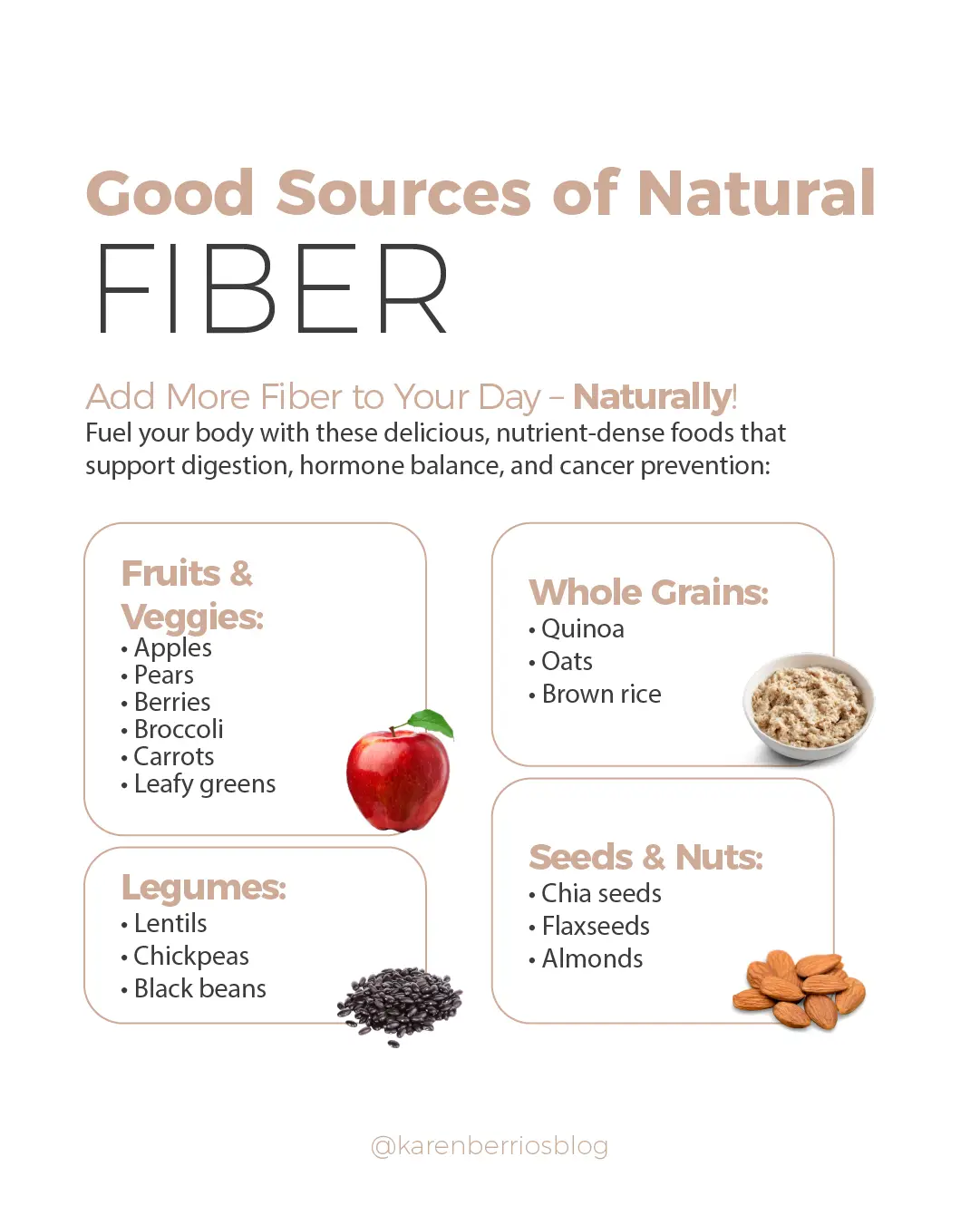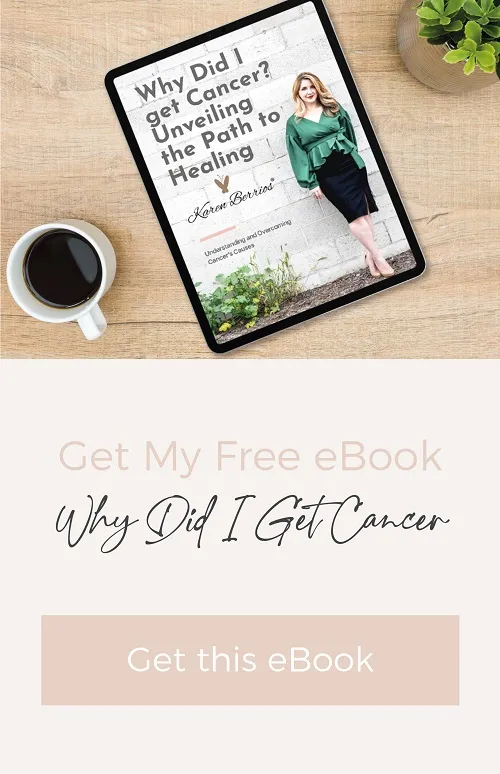

How Fiber Became a Vital Ally in My Cancer Prevention Journey
How fiber helped me prevent cancer. When I began my healing journey, I quickly realized how deeply our diet shapes our long-term health. Among the many tools I discovered along the way, one has consistently stood out: dietary fiber. Often overlooked, these plant-based nutrients play a vital role in supporting our digestive system, regulating cholesterol levels, and even helping prevent cancer. From my own experience, I’ve seen how nourishing my body with fiber-rich foods helped me regain balance and energy.
In this article, I want to share what I’ve learned from both personal experience and emerging scientific research—particularly the findings of a recent review on this topic. As someone who’s walked the path of healing, I believe understanding these tools can empower us all. Let’s explore how plant-based roughage works within us, what types exist, and how to build a balanced eating pattern that supports our bodies and protects our well-being.
Understanding What Fiber Is and the Different Types
Dietary fiber refers to the indigestible parts of plant foods that help regulate the digestive system and promote overall health. There are two main types: soluble, which dissolves in water and helps lower cholesterol levels, and insoluble, which does not dissolve and helps prevent constipation by promoting regular bowel movements.
In my own kitchen, I’ve learned the importance of including both forms. Soluble components absorb water and form a gel-like substance in the gut, slowing digestion and regulating blood sugar. Insoluble ones add bulk to the stool and help move food efficiently through the intestines. Both are essential to maintaining a balanced gut and reducing the risk of chronic illness, including certain cancers.
How a Plant-Rich Diet Can Help Prevent Cancer
The protective role of these natural fibers against cancer is a powerful testimony to nature’s healing potential. Studies have shown that diets rich in unprocessed plant matter can lower the risk of colorectal cancer—the third most common cancer worldwide. I found comfort in knowing that every nutrient-dense meal I prepared was a step toward protecting my future.
This is primarily due to fiber’s impact on digestive health, microbiome balance, and inflammation regulation. It reduces transit time in the colon, minimizing contact between potential carcinogens and the intestinal lining. Additionally, fermentation by gut bacteria produces short-chain fatty acids like butyrate, which have anti-inflammatory and anti-cancer properties.
Research also suggests that plant-based food components may reduce the risk of breast and prostate cancers by influencing cholesterol levels, hormonal balance, and insulin sensitivity—all factors linked to cancer development. As a woman and cancer survivor, this knowledge is deeply empowering to me.
The Connection Between Gut Health and Immunity
Our gut is home to a complex community of bacteria, and the foods we consume directly affect its balance. Whole grains, legumes, and colorful produce support a healthy microbiome, which is critical for regulating inflammation and protecting our immune system. When I started focusing on gut health, I noticed a real shift in my energy and overall resilience.
A diverse microbiome strengthens our immune defenses, helps detoxify harmful substances, and promotes the growth of beneficial bacteria. All of these factors play a role in cancer prevention. When we nourish our gut with plant-based fiber, we’re not just improving digestion—we’re building resilience from the inside out.
Good Sources of Natural Fiber to Include Daily
If you’re wondering how to get started, it’s easier than you might think. Focus on adding more fruit and vegetables, whole grains, legumes, seeds, and nuts into your meals. I’ve made it a habit to add flaxseeds to my smoothies or enjoy a bowl of lentils with lunch.
Here are some high-fiber foods you can include:
- Apples, pears, and berries
- Broccoli, carrots, and leafy greens
- Quinoa, oats, and brown rice
- Lentils, chickpeas, and black beans
- Chia seeds, flaxseeds, and almonds
These foods are not only great sources of roughage but also rich in antioxidants, vitamins, and minerals that further contribute to your overall health.
Making Lifestyle Changes That Support Digestive and Hormonal Health
It’s not just about what we eat—it’s also how we live. Staying physically active, managing stress, and avoiding processed meats can further enhance the protective effects of a plant-based lifestyle. Over the years, I’ve learned to view daily walks and wholesome food as sacred rituals for healing.
Start by gradually increasing your intake of these nutrients to avoid bloating or discomfort, aiming for around 25–35 grams per day, depending on your age and needs. Always pair fiber with water, as it absorbs water and needs hydration to move smoothly through your system.
Should You Consider Supplements?
While whole foods are the best source of plant-based roughage, some may consider using fiber supplements to bridge the gap, especially if they have specific dietary restrictions. Personally, I’ve always preferred turning to nature first, but I know sometimes we need a little help.
However, supplements should never replace a varied, nutrient-rich diet. If you’re thinking of incorporating one, consult a healthcare provider to ensure it aligns with your body’s needs. Remember, your body thrives on natural, unprocessed nourishment. Supplements may help, but they can’t replace the power of real food.
Final Reflections: Nourishing Ourselves as a Daily Practice
Every day, we make small choices that either move us toward healing or away from it. Choosing foods rich in natural fiber is one of the simplest yet most impactful ways we can care for our bodies. It’s not about extremes—it’s about consistency, presence, and intention. That’s what I’ve discovered on my journey.
By embracing the health benefits of a high-roughage lifestyle, we empower our digestive system, support hormonal health, and help prevent chronic diseases, including cancer. I encourage you to look at your plate not just as a source of energy, but as a path to longevity and vibrant living.
Your journey to better health begins with what you choose to nourish yourself with—one bite, one choice at a time. And I’ll be right here, cheering you on.

hey there
I'm Karen!
I have found my cancer journey to be a positive and profound transformational experience. I’m inspired to share my healing journey here, and trust you’ll find hope, encouragement and purpose as you discover the healing power that lies within you.
Join
The Mailing List!
By signing up for my newsletter, you agree with our Privacy Policy and Terms & Conditions.



